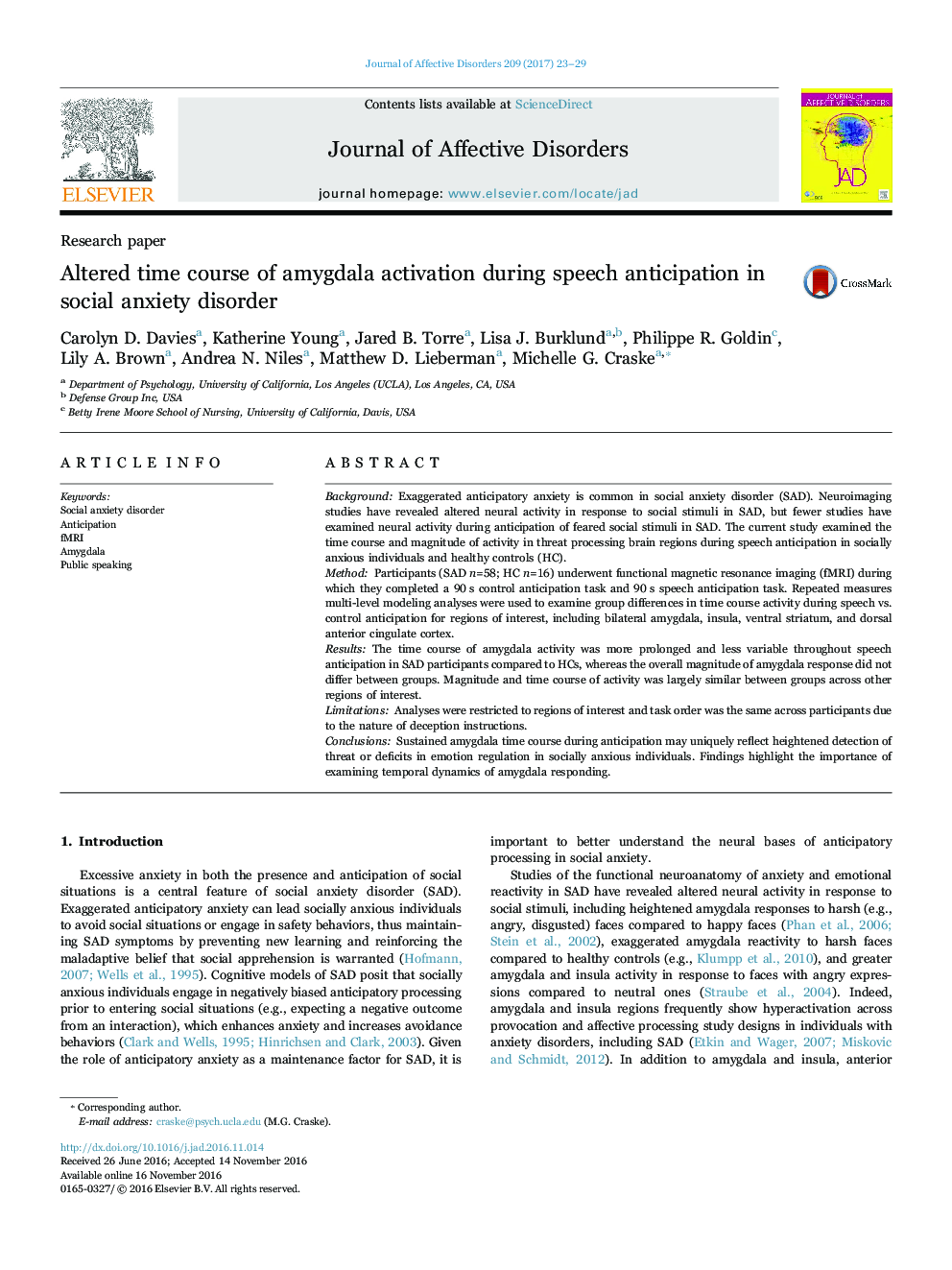| کد مقاله | کد نشریه | سال انتشار | مقاله انگلیسی | نسخه تمام متن |
|---|---|---|---|---|
| 5722262 | 1608116 | 2017 | 7 صفحه PDF | دانلود رایگان |
- Amygdala time course was more sustained in SAD vs HC during speech anticipation.
- Less variability (but not mean) of amygdala activity predicted SAD severity.
- Magnitude and time course of other ROI activity was largely similar between groups.
BackgroundExaggerated anticipatory anxiety is common in social anxiety disorder (SAD). Neuroimaging studies have revealed altered neural activity in response to social stimuli in SAD, but fewer studies have examined neural activity during anticipation of feared social stimuli in SAD. The current study examined the time course and magnitude of activity in threat processing brain regions during speech anticipation in socially anxious individuals and healthy controls (HC).MethodParticipants (SAD n=58; HC n=16) underwent functional magnetic resonance imaging (fMRI) during which they completed a 90Â s control anticipation task and 90Â s speech anticipation task. Repeated measures multi-level modeling analyses were used to examine group differences in time course activity during speech vs. control anticipation for regions of interest, including bilateral amygdala, insula, ventral striatum, and dorsal anterior cingulate cortex.ResultsThe time course of amygdala activity was more prolonged and less variable throughout speech anticipation in SAD participants compared to HCs, whereas the overall magnitude of amygdala response did not differ between groups. Magnitude and time course of activity was largely similar between groups across other regions of interest.LimitationsAnalyses were restricted to regions of interest and task order was the same across participants due to the nature of deception instructions.ConclusionsSustained amygdala time course during anticipation may uniquely reflect heightened detection of threat or deficits in emotion regulation in socially anxious individuals. Findings highlight the importance of examining temporal dynamics of amygdala responding.
Journal: Journal of Affective Disorders - Volume 209, February 2017, Pages 23-29
